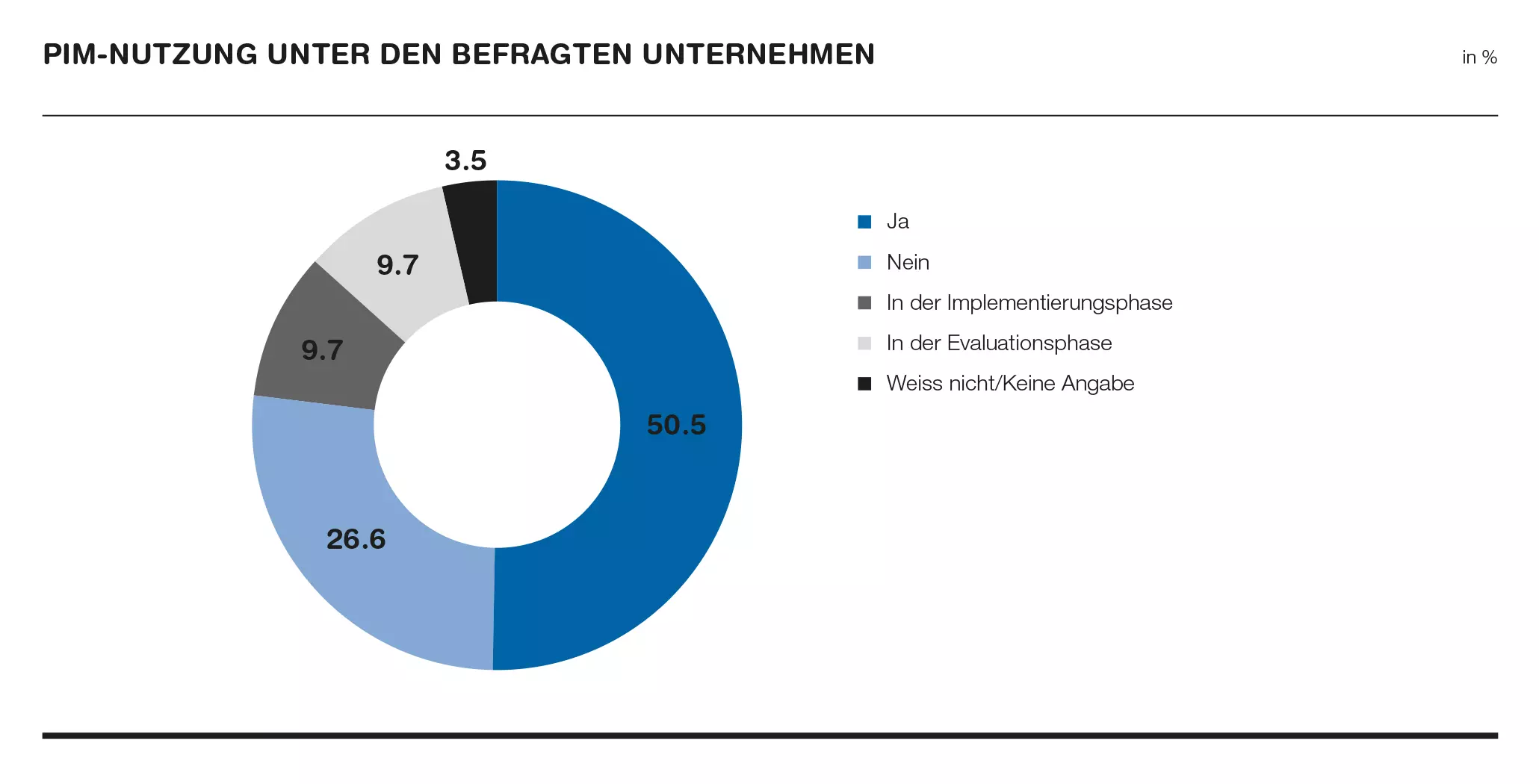Companies failing to exploit the potential of product data
The systematic use of product data with the help of digital solutions is not yet widespread in Switzerland, Germany and Austria. Many companies underestimate the potential offered by using such data, as revealed by a current ZHAW study.
The systematic and digital collection and use of product data is highly beneficial for producers and retailers: so-called PIM (product information management) systems lay the foundation for an improved customer experience and increased revenues, while also allowing for optimal cooperation between companies. Nevertheless, the use of such solutions by companies in Switzerland, Germany and Austria is not yet seen across the board: while around 50 percent of the surveyed companies do use such a system and a further 20 percent are in the evaluation or implementation phase, approximately a quarter of the companies questioned do not currently have a PIM system in place. PIM systems are most commonly used in the consumer goods sector and are utilised least at industrial companies. These results come from a recent study by the ZHAW School of Management and Law.
Online retailers, in particular, could profit
“Most companies consider PIM systems to be useful. However, many of them primarily recognise their technical and operational advantages, such as an improvement in data quality. The additional financial value and potential to achieve strategic company goals that they offer are significantly less acknowledged,” as Rainer Fuchs, who headed the study, explains. Using integrated PIM systems, e-commerce companies, in particular, are able to inform their clients about the characteristics, quality, origin and sustainability of their products in a detailed and transparent way. “In doing so, they can stand out from the crowd in the evermore competitive e-commerce sector, offer clients added value and ultimately generate more sales,” says Fuchs.
A lack of know-how
In addition to underestimating the advantages of PIM systems, additional barriers to their increased use include a lack of internal know-how as well as their complex implementation. This is due to the fact that data often has to be gathered from various company departments and applications in order for such a system to be implemented.
The systematic use of data and the utilisation of corresponding digital solutions has been standard in the area of client relationship management for several years. “In the future, the importance of product data management is also likely to increase greatly,” opines Fuchs. PIM systems are software solutions that allow for the systematic collection, consolidation and enrichment of product-related information, as well as the integration of such information from other business systems. Moreover, such solutions can automatically relay data to various additional channels, for example the product catalogue of an online shop.
Survey of over 100 companies
The study “Product Information Management as a value driver”(PDF 1,8 MB) (in German) was carried out by the Institute of Marketing Management at the ZHAW School of Management and Law. It is based on ten interviews with experts and an online survey of over 100 companies in Switzerland, Germany and Austria. The study took place from February to June 2021. It was set up in cooperation with the German company novomind AG and the Swiss company brix IT Solutions GmbH as business implementation partners.
